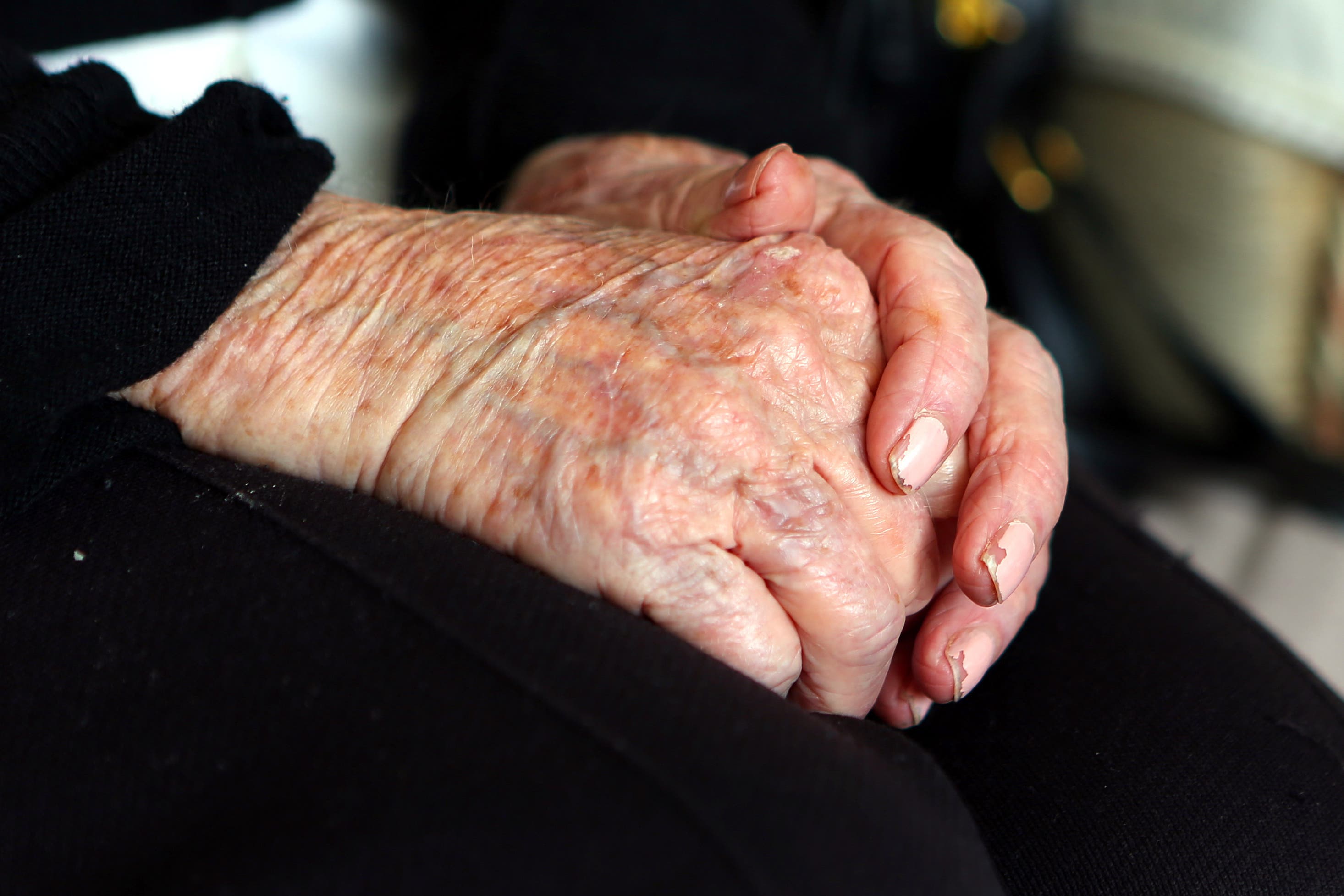Alzheimer’s breakthrough as blood tests could be offered on NHS
Dementia affects around 900,000 people in the UK and experts predict that will rise to 1.4 million people by 2040
Your support helps us to tell the story
From reproductive rights to climate change to Big Tech, The Independent is on the ground when the story is developing. Whether it's investigating the financials of Elon Musk's pro-Trump PAC or producing our latest documentary, 'The A Word', which shines a light on the American women fighting for reproductive rights, we know how important it is to parse out the facts from the messaging.
At such a critical moment in US history, we need reporters on the ground. Your donation allows us to keep sending journalists to speak to both sides of the story.
The Independent is trusted by Americans across the entire political spectrum. And unlike many other quality news outlets, we choose not to lock Americans out of our reporting and analysis with paywalls. We believe quality journalism should be available to everyone, paid for by those who can afford it.
Your support makes all the difference.Blood tests for Alzheimer’s could be available on the NHS within five years, experts have said.
A £5 million project has been launched to bring simple tests to the health service, with the hope of speeding up diagnosis and reaching more people.
The new project – the Blood Biomarker Challenge – will work with researchers to pilot new blood tests in the NHS that can diagnose different forms of dementia earlier and more accurately.
A range of tests for Alzheimer’s are in the research stages, including those looking for specific proteins that occur before dementia symptoms appear.
At present, diagnosing people with Alzheimer’s can be tricky and relies on brain imaging or painful lumbar punctures, where a sample of cerebrospinal fluid is drawn from the lower back.
Less than two-thirds of people in 900,000 people in the UK affected by dementia have a formal diagnosis and many can face long waits to be seen.
Using £5 million of funding from the People’s Postcode Lottery, the Alzheimer’s Research UK and the Alzheimer’s Society are now working with the National Institute for Health and Care Research to make blood tests on the NHS a reality.
Pharmaceutical giants Roche and Eli Lilly have also announced they have joined forces to develop a blood test for Alzheimer’s disease.

Some tests were already being used in private clinics in Hong Kong and the US, but UK charities said more work was needed to ensure tests were measuring the right combination of biomarkers.
The need for blood tests to diagnose Alzheimer’s has become more pressing since the medicines donanemab and lecanemab were found to slow cognitive decline.
Both these drugs made headlines around the world and are set to be assessed for use in the UK.
Dr Susan Kohlhaas, executive director of research and partnerships at Alzheimer’s Research UK, told a briefing: “We expect more people to be coming forward for diagnosis, we expect them to be coming forward at a younger age and we expect them to be coming forward with less obvious symptoms.
“We need better, more scalable tests that are also accurate, and compare to current gold-standard methods.”
Dementia affects around 900,000 people in the UK and experts predict that will rise to 1.4 million people by 2040.
While Dr Kohlhaas said that the UK was “sitting on the cusp of a new era of dementia treatments”, she added that the the NHS “doesn’t possess the required levels of diagnostic infrastructure to cope with this growing demand”

She said: “Currently, only 2% of people are offered advanced diagnostic tests like PET scans and lumbar punctures.
“Significant investment is needed to ensure the NHS has the right tools to identify people with dementia much earlier than it is currently able to.
“Low-cost tools like blood tests that are non-invasive and simpler to administer than current gold-standard methods are the answer to this.
“But we need to move these tests out of the lab and assess their effectiveness in real-world settings like the NHS.”
There is no suggestion as yet that the tests could be used for mass population testing.
Fiona Carragher, director of research and influencing at the Alzheimer’s Society, said: “New drugs targeting early-stage Alzheimer’s disease are just around the corner, but without a diagnosis, people simply won’t be able to access them if they are approved.”
She said introducing a blood test for dementia into UK healthcare systems would be “a truly game-changing win in the fight against this devastating disease”.




Join our commenting forum
Join thought-provoking conversations, follow other Independent readers and see their replies
Comments